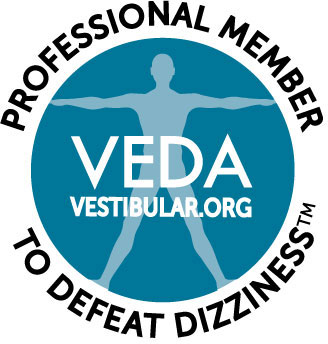Double vision, or diplopia, occurs when twin images appear in your field of view. While double vision can be distinct and noticeable, it can also manifest in other less-obvious forms, such as nausea, blurred vision, and vertigo. Surprisingly enough, many people have unconsciously learned to live with the condition, and often don’t even realize that they have it. Double vision can even be unpredictable; in some cases it may be constant, while in others it occurs intermittently.

a conceptual image representing a focus on vision
If you think you may be suffering from double vision symptoms, it’s important to be treated by trained neurovisual specialists like the doctors at the Neuro Visual Center of New York.
What Causes Double Vision?
Double vision has a variety of different causes, some of which include:
-
Cataracts. If you have a cataract clouding the lens of your eye, it can change the way the lens refracts light as it comes into your eye, causing diplopia. This type of double vision does not go away if you cover one eye.
-
Binocular Vision Dysfunction. Double vision can occur as a result of the eyes’ inability to turn inward, outward, or up or down together. Double vision can be horizontal, vertical or on the diagonal. Other symptoms that may occur include blurred vision, headaches, and eye strain.
-
Ocular Surface Disease/Corneal Irregularity. Disease or irregularities on the surface of the cornea can cause light to refract in different directions, leading to distorted images and monocular diplopia, or double vision in one eye.
In addition, diplopia sometimes results from certain systemic conditions that can affect the eyes:
-
Diabetes
-
Myasthenia gravis
-
Neurodegenerative diseases
-
Traumatic brain injuries (TBI)
Why Do Some People Fail to Recognize They Have Double Vision?
Binocular vision dysfunction (BVD) is a misalignment of the eyes. When BVD is present, it’s impossible for the eyes to send one clear picture to the brain. So how is it that people with double vision often don’t realize that they have it? As incredible as it may seem, the brain is able to fool the eyes into believing that they’re really seeing one image instead of two. It does this by physically forcing the eyes back into alignment. This puts a great amount of strain on the intraocular muscles, causing them to become overworked and fatigued. Double vision is just one of the symptoms that can become apparent when the eye muscles become tired and stressed. Others can include headaches, dizziness and nausea, vertigo, balance issues, neck and shoulder pain, and trouble concentrating.
Double Vision or Other Symptoms? Get a Neurovisual Examination
If you think you could have double vision resulting from a traumatic brain injury or binocular vision dysfunction, the Neuro Visual Center of New York can help. Drs. Cheryl and Marissa have many years of experience diagnosing and treating double vision, as well as other symptoms of TBI and BVD. To find out more about the specialized aligning prismatic lenses we use to treat double vision, give us a call at (516) 224-4888.





